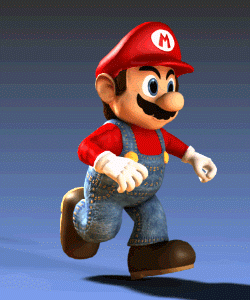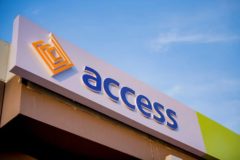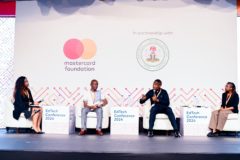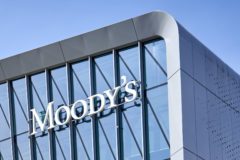Yesterday, TechCabal told you about the directive from the Nigerian Communications Commission (NCC) asking mobile operators to review their data tariff pricing. The commission introduced a new price floor of 0.90k/MB for data services, effectively hiking up data prices for consumers from December 1, 2016.
Several reasons have been proffered for this. The NCC itself said the directive was to protect small operators and new entrants in the mobile data space. According to the document obtained by The Cable, NCC said, “In order to provide a level playing field for all operators in the industry [allowing] small operators and new entrants to acquire market share and operate profitably. Small operators and new entrants are hereby exempted for the price floor for data services.”
It continues, “For the avoidance of doubt a small operator is one that has less than 7.5 percent market share and a new entrant is an operator that has operated less than three years in the market.”
Punch has also proffered its own reason. According to the newspaper, an anonymous executive in Etisalat said the NCC directive was on the orders of the Federal Government of Nigeria “having discovered that data rates are very low-priced in Nigeria, compared to other countries, including nearby African countries. The government might have also taken the decision given that Nigerian subscribers have been kicking against the proposed nine percent Communication Tax, whose bill is currently in the National Assembly.”
The NCC itself has remained surprisingly silent. Its twitter account does not have any information on the issue.
Wonderful, is it not?
Another anonymous telecom employee (MTN’s this time), gave a picture of what we should expect – “What this means is that MTN, Airtel, Etisalat And Globacom will increase their data rates as from December 1, 2016. A data plan of N1,000 for 1.5 Gigabytes will now be increased to N3,000 at N1,000 per 500 Megabytes.”
Again, very wonderful.
Nigerians are not taking this news lying down. Several of them have taken to social media to vent their anger over the data price hike.
Leading the pack is our Buy Naija senator, Ben Murray Bruce, who says he will champion the fight against the price hike in the Nigerian Senate.
I will fight against this data in the Senate. The NCC, as a regulator, should be directing that GSM firms reduce and not increase tariffs!!
— Ben Murray-Bruce (@benmurraybruce) November 29, 2016
CBN: Tax phone calls
NCC: Increase price of data
FRSC: Raise cost of licence
NERC: Raise electricity tariffs
Nigerians: Kuku kill us!— Amara Nwankpa (@Nwankpa_A) November 30, 2016
All over the world data prices are crashing. In Nigeria, the NCC is tasking the telco's to hike data price. I'm tired, I don't belong here.
— Miz Cazorla (@MizCazorla1) November 29, 2016
https://twitter.com/AndyMadaki/status/803600865831649280
A concerned Nigerian reached out to Senate President Bukola Saraki and he promised to look into the matter.
Will do.. https://t.co/4ehcCOUbS2
— Dr. Abubakar Bukola Saraki (@bukolasaraki) November 29, 2016
Others have taken matters into their hands and started a petition against the directive. 2,975 people have already signed since it was started 4 days ago.
Please take time out to sign a petition against NCC and its proposed data price hike. Just follow the link, it… https://t.co/eAlrcMqWhn
— Constance (@constance9) November 29, 2016
#NoToDataHike: There's a petition on @Change that you can sign – https://t.co/nAOyYn81YQ
3/— EiE Nigeria (@EiENigeria) November 30, 2016
In the midst of all this, some have found a way to link it back to why we should have voted for former president Jonathan.
Did @GEJonathan lie? pic.twitter.com/CkWb7MaQqs
— Reno Omokri (@renoomokri) November 30, 2016
Of course, the price hike will only affect data services and not voice or other services. Price caps are typically for the benefit of the consumer when demand is independent, it’s to ensure that big market players do not stifle their competition with low prices but equally low quality. The problem is nobody trusts that the NCC (who is not even sure of current teledensity figures) has enough data to use price controls appropriately.
When the NCC first removed price caps last year, it believed that the market share was dispersed enough to ensure competitive pricing while also ensuring quality services for consumers. It reied to water down MTN and Globacom’s 62% hold on the market by licensing the remaining 30MHz of the 2.3GHz spectrum to the small players and new entrants. Unfortunately, NCC read the market wrong. Data services providers and the market refused to respond to the value it placed on spectrum resulting in an unbalanced market.
Yesterday, I ended my post with a depressing “we will adjust” sentiment. A discussion with a reader who reached out to me via twitter dm showed how it could be misconstrued as an oversimplification of the repercussions of this price hike.
Today, I will end with a series of tweets by tech entrepreneur, Iyin Aboyeji.
https://twitter.com/iaboyeji/status/803686659283763201





















